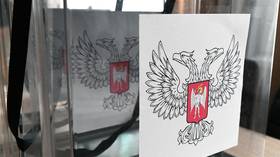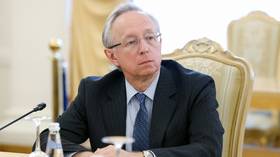Russia announces elections in new regions

Russia’s Central Election Commission (CEC) on Thursday gave the green light to hold elections in the Donetsk and Lugansk People’s Republics (DPR, LPR), as well as Kherson and Zaporozhye Regions. Ballots will be cast on Russia’s Single Voting Day, which is scheduled for September 10.
CEC chairperson Ella Pamfilova said that she received appeals from the acting heads of the four territories asking to hold elections and that her office has since consulted with the Russian Defense Ministry and Federal Security Service (FSB), about what measures would have to be taken for such a plan to proceed.
After outlining the necessary conditions, the departments presented their position that elections can be held, Pamfilova said, noting that the final approval must be given by President Vladimir Putin.
Single Voting Day in Russia is held on the second Sunday of September. Governors and members of regional legislators, city mayors and city legislatures, as well as members of municipal representative bodies are all elected on this day. Additionally, by-elections to the State Duma, the lower house of the national parliament, are held in single-seat constituencies.
The CEC explained that on September 10, the residents of Russia’s new territories will be able to elect municipality representatives, as well as deputies to the DPR and LPR People’s Councils, the Zaporozhye Legislative Assembly, and the Kherson Regional Duma. The office noted that some 80 election campaigns will be held in total.
The DPR and LPR, as well as the Zaporozhye and Kherson regions, officially became part of Russia in September of last year after holding public referendums in which the overwhelming majority of voters supported the move.
Ukraine and its Western backers have refused to recognize the referendum results and have continued to insist that the four regions have been “illegally annexed” by Russia. Kiev has also repeatedly pledged to take back the territories by force, as well as the Crimean peninsula, which reunited with Russia in 2014.
Moscow has defended the legitimacy of the referendums, arguing that the citizens of the regions had expressed their right to self-determination. Russia has repeatedly urged Kiev to accept “the new territorial realities.”













